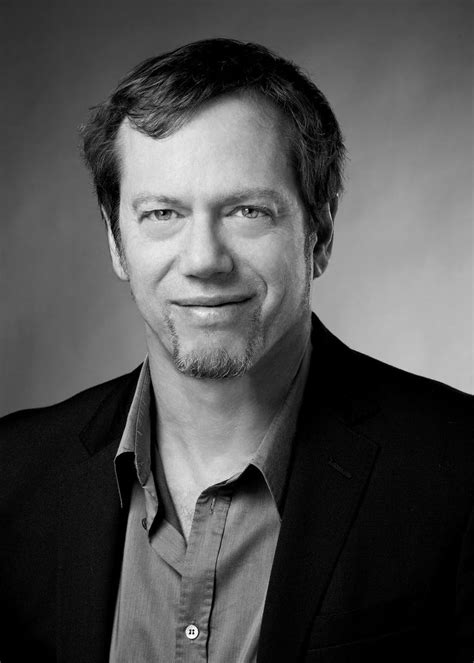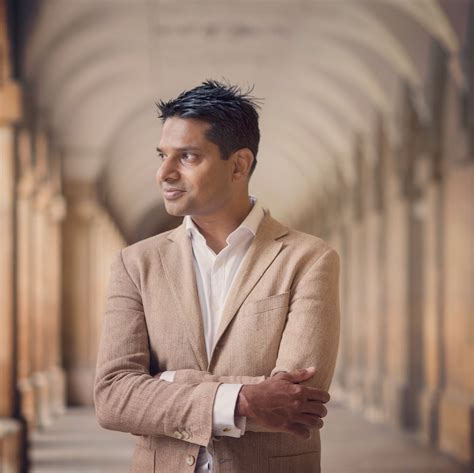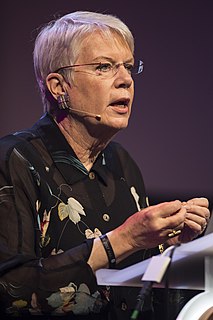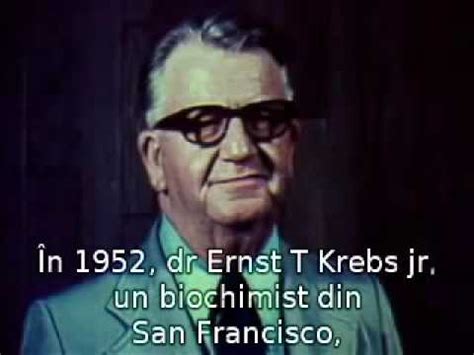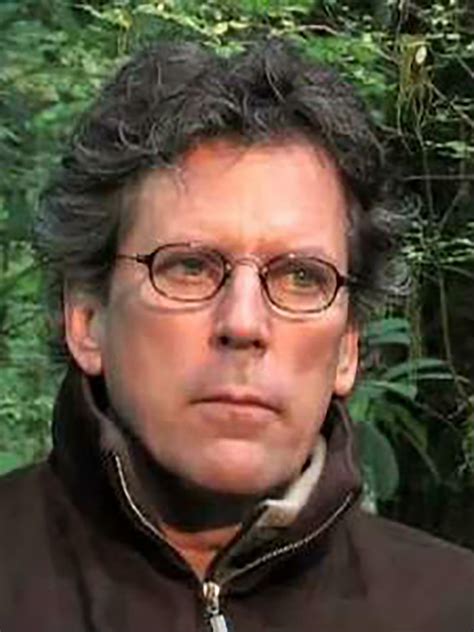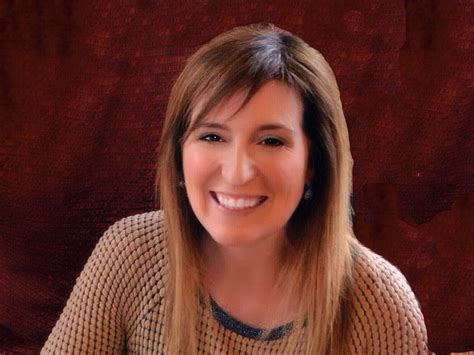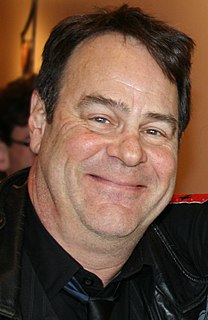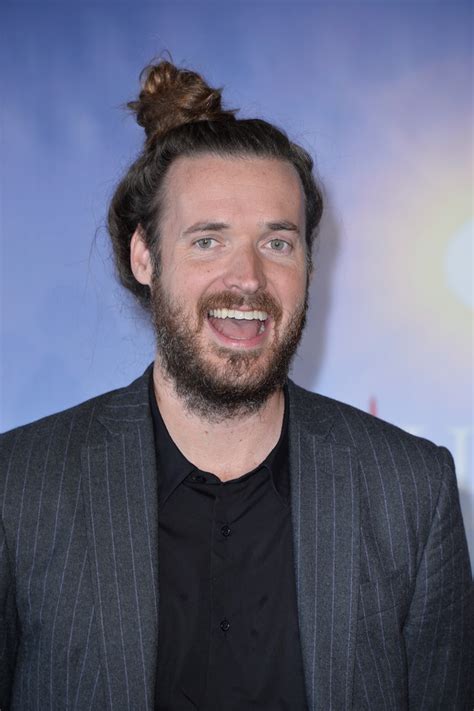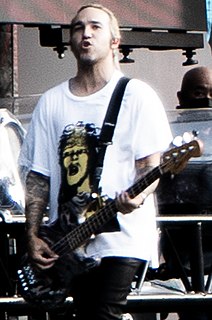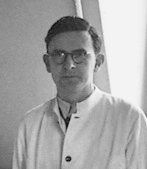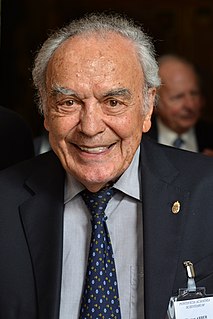Top 283 Molecules Quotes & Sayings - Page 5
Explore popular Molecules quotes.
Last updated on November 6, 2024.
[John] Dalton was a man of regular habits. For fifty-seven years he walked out of Manchester every day; he measured the rainfall, the temperature-a singularly monotonous enterprise in this climate. Of all that mass of data, nothing whatever came. But of the one searching, almost childlike question about the weights that enter the construction of these simple molecules-out of that came modern atomic theory. That is the essence of science: ask an impertinent question, and you are on the way to the pertinent answer.
Every thought, feeling, and emotion creates a molecule known as a neuropeptide. Neuropeptides travel throughout your body and hook onto receptor sites of cells and neurons. Your brain takes in the information, converts it into chemicals, and lets your whole body know if there's trouble in the world or cause for celebration. Your body is directly influenced as these molecules course through the bloodstream, delivering the energetic effect of whatever your brain is thinking and feeling.
Nature is flexible and resilient. Nature likes redundancy and dispersion. It is approximate and deals in gradients. All boundaries are permeable. Nature nests small systems like molecules within larger systems like cells, which in turn are nested in systems called organs, organisms, ecosystems. We grew from ancient one-celled ancestors. Nature likes mergers: we contain multitudes of other life forms within us. We stand at the crest of four billion years, bacteria molded into wondrous form, burning with a slow fire and about to take the next step.
While conversion of sugars to ethanol is the predominant reaction, it is only one of potentially thousands of biochemical reactions taking place during fermentation. As a result, wine contains trace amounts of a large number of organic acids, esters, sugars, alcohols, and other molecules. Wine is, in fact, one of the most complex of all beverages: the fruit of a soil, climate, and vintage, digested by a fungus through a process guided by the culture, vision, and skill of an individual man or woman.
We all come into existence as a single cell, smaller than a speck of dust. Much smaller. Divide. Multiply. Add and subtract. Matter changes hands, atoms flow in and out, molecules pivot, proteins stitch together, mitochondria send out their oxidative dictates; we begin as a microscopic electrical swarm. The lungs the brain the heart. Forty weeks later, six trillion cells get crushed in the vise of our mother’s birth canal and we howl. Then the world starts in on us.
In the heavens we discover [stars] by their light, and by their light alone ... the sole evidence of the existence of these distant worlds ... that each of them is built up of molecules of the same kinds we find on earth. A molecule of hydrogen, for example, whether in Sirius or in Arcturus, executes its vibrations in precisely the same time. Each molecule therefore throughout the universe bears impressed upon it the stamp of a metric system as distinctly as does the metre of the Archives at Paris, or the royal cubit of the Temple of Karnac.
Simple molecules combine to make powerful chemicals. Simple cells combine to make powerful life-forms. Simple electronics combine to make powerful computers. Logically, all things are created by a combination of simpler, less capable components. Therefore, a supreme being must be in our future, not our origin. What if "God" is the consciousness that will be created when enough of us are connected by the Internet?!!
We are made out of stardust. The iron in the hemoglobin molecules in the blood in your right hand came from a star that blew up 8 billion years ago. The iron in your left hand came from another star. We are the laws of chemistry and physics as they have played out here on Earth and we are now learning that planets are as common as stars. Most stars, as it turns out now, will have planets.
According to "matter-ism," matter is all that exists. The only things that are real are physical things in motion governed by natural law. That story starts, "In the beginning were the particles," or, as one famous person put it, "The cosmos is all that is, or ever was, or ever will be." No God. No souls. No Heaven or Hell. No miracles. No transcendent morality. Just molecules in motion following the patterns of natural law. This is the story that most atheists, most "skeptics," most humanists, and most Marxists believe is true.
We are nothing but the product of billions of years of molecules coming together and ratcheting up through natural selection, we are composed only of highways of fluids and chemicals sliding along roadways within billions of dancing cells, trillions of synaptic conversations hum in parallel, this vast egglike fabric of micron-thin circuitry runs algorithms undreamt of in modern science, and these neural programs give rise to our decision making, loves, desires, fears, and aspirations. That understanding would be a numinous experience, better than anything ever proposed in anyone's holy text.
Four elements, Hydrogen, carbon, oxygen and nitrogen, also provide an example of the astonishing togetherness of our universe. They make up the "organic" molecules that constitute living organisms on a planet, and the nuclei of these same elements interact to generate the light of its star. Then the organisms on the planet come to depend wholly on that starlight, as they must if life is to persist. So it is that all life on the Earth runs on sunlight. [Referring to photosynthesis]
There may be rhetoric about the socially constructed nature of Western science, but wherever it matters, there is no alternative. There are no specifically Hindu or Taoist designs for mobile phones, faxes or televisions. There are no satellites based on feminist alternatives to quantum theory. Even that great public sceptic about the value of science, Prince Charles, never flies a helicopter burning homeopathically diluted petrol, that is, water with only a memory of benzine molecules, maintained by a schedule derived from reading tea leaves, and navigated by a crystal ball.
Originally, the atoms of carbon from which we're made were floating in the air, part of a carbon dioxide molecule. The only way to recruit these carbon atoms for the molecules necessary to support life-the carbohydrates, amino acids, proteins, and lipids-is by means of photosynthesis. Using sunlight as a catalyst the green cells of plants combine carbon atoms taken from the air with water and elements drawn from the soil to form the simple organic compounds that stand at the base of every food chain. It is more than a figure of speech to say that plants create life out of thin air.
Some molecules - ammonia, carbon dioxide, water - show up everywhere in the universe, whether life is present or not. But others pop up especially in the presence of life itself. Among the biomarkers in Earth's atmosphere are ozone-destroying chlorofluorocarbons from aerosol sprays, vapor from mineral solvents, escaped coolants from refrigerators and air conditioners, and smog from the burning of fossil fuels. No other way to read that list: sure signs of the absence of intelligence.
We only recently figured out the origin of our own moon. And we have some idea of how the Sun and Earth formed, but that's only because modern telescopes empower us to see other stars and planets freshly hatched within gas clouds across the galaxy. As for the origin of life itself, the transition from inanimate molecules to what any of us would call life remains one of the great frontiers of biology.
Capturing the beauty of the conversion of the water into wine, the poet Alexander Pope said, "The conscious water saw its Master and blushed." That sublime description could be reworked to explain each one of these miracles. Was it any different in principle for a broken body to mend at the command of its Maker? Was it far-fetched for the Creator of the universe, who fashioned matter out of nothing, to multiply bread for the crowd? Was it not within the power of the One who called all the molecules into existence to interlock them that they might bear His footsteps?
The slight variations in extracting procedure cause many of the amygdalin (Vitamin B-17, Laetrile) molecules to change to a form unknown to nature(:) isomers...There are ...purveyors who label their 'iso-amygdalin' products 'amygdalin' contrary to all of the recognized specs...For commercial or political purposes, they certainly cannot justify such a fallacy...This scientific heresy and commercial fraud...(is) tremendously reducing the effectiveness of amygdalin therapy. ...To mislabel iso-amygdalin as amygdalin is scientifically, medically, and morally indefensible.
CHOW^TM contained spun, plaited, and woven protein molecules, capped and coded, carefully designed to be ignored by even the most ravenous digestive tract enzymes; no-cal sweeteners; mineral oils replacing vegetable oils; fibrous materials, colorings, and flavorings. The end result was a foodstuff almost indistinguishable from any other except for two things. Firstly, the price, which was slightly higher, and secondly, the nutritional content, which was roughly equivalent to that of a Sony Walkman.
The messages that DNA molecules contain are all but eternal when seen against the time scale of individual lifetimes. The lifetimes of DNA messages give or take a few mutations are measured in units ranging from millions of years to hundreds of millions of years; or, in other words, ranging from 10,000 individual lifetimes to a trillion individual lifetimes. Each individual organism should be seen as a temporary vehicle, in which DNA messages spend a tiny fraction of their geological lifetimes.
If you are having the experience of anxiety, your body is making adrenaline and cortisone, if you are having the experience of tranquility, your body starts making valium, if you are having the experience of exhilaration and joy, your body makes interleukins and interferons which are powerful anti-cancer drugs. So, your body is constantly converting your experiences into molecules.
Beyond natural history Other biological sciences take up the study at other levels of organization: dissecting the individual into organs and tissues and seeing how these work together, as in physiology; reaching down still further to the level of cells, as in cytology; and reaching the final biological level with the study of living molecules and their interactions, as in biochemistry. No one of these levels can be considered as more important than any other.
On one planet [earth], and possibly only one planet in the entire universe, molecules that would normally make nothing more complicated than a chunk of rock, gather themselves together into chunks of rock-sized matter of such staggering complexity that they are capable of running, jumping, swimming, flying, seeing, hearing, capturing and eating other such animated chunks of complexity; capable in some cases of thinking and feeling, and falling in love with yet other chunks of complex matter.
Natural causes, as we know, are at work, which tend to modify, if they do not at length destroy, all the arrangements and dimensions of the earth and the whole solar system. But though in the course of ages catastrophes have occurred and may yet occur in the heavens, though ancient systems may be dissolved and new systems evolved out of their ruins, the molecules [i.e. atoms] out of which these systems are built-the foundation stones of the material universe-remain unbroken and unworn.? They continue to this day as they were created-perfect in number and measure and weight.
The surface of the moon is like nothing here on Earth! It's totally lacking any evidence of life. It has lots of fine, talcum-powderlike dust mixed with a complete variety of pebbles, rocks, and boulders. Many pebbles, fewer rocks, and even fewer boulders naturally make up its surface. The dust is a very fine, overall dark gray. And with no air molecules to separate the dust, it clings together like cement.
At last the cold crept up my spine; at last it filled me from foot to head; at last I grew so chill and desolate that all thought and pain and awareness came to a standstill. I wasn't miserable anymore: I wasn't anything at all. I was a nothing-- a random configuration of molecules. If my heart still beat I didn't know it. I was aware of one thing only; next to the gaping fact called Death, all I knew was nothing, all I did meant nothing, all I felt conveyed nothing. This was no passing thought. It was a gnawing, palpable emptiness more real than the cold.
The idea of flux, kind of constant change, whether it be our sense of time or geological time or cosmic time. It's always there, and I think that maybe it's a way of dealing with the idea of mortality, trying to acknowledge the fact that all things change, and whereas, maybe death is the end of one state of being it's the beginning of something else. I'm not talking about going to heaven or being reincarnated as a toad, I'm talking about the idea that the molecules in our bodies, or at least the atoms, were here at the beginning of the universe, and the sense that we are basically matter.
We may, I believe, anticipate that the chemist of the future who is interested in the structure of proteins, nucleic acids, polysaccharides, and other complex substances with high molecular weight will come to rely upon a new structural chemistry, involving precise geometrical relationships among the atoms in the molecules and the rigorous application of the new structural principles, and that great progress will be made, through this technique, in the attack, by chemical methods, on the problems of biology and medicine.
I am not prepared to deny or assert any proposition which concerns myself; but certainly this solitary struggle with platitudinous atoms, called men and women by courtesy, leads me to wish for my wife again. How did I ever hit on the only woman in the world who fits my cravings and never sounds hollow anywhere? Social chemistry-the mutual attraction of equivalent human molecules-is a science yet to be created, for the fact is my daily study and only satisfaction in life.
The story is told of Lord Kelvin, a famous Scotch physicist of the last century, that after he had given a lecture on atoms and molecules, one of his students came to him with the question, "Professor, what is your idea of the structure of the atom." "What," said Kelvin, "The structure of the atom? Why, don't you know, the very word 'atom' means the thing that can't be cut. How then can it have a structure?" "That," remarked the facetious young man, "shows the disadvantage of knowing Greek."
Everything we think we know is really only perceived by our senses,' he explains patiently. 'The sounds we hear are just waves in the air; colors are electromagnetic radiation; your sense of taste comes from molecules that match a specific area on your tongue. Hey, if our eyes could access the infrared part of the light spectrum, the sky would be green and trees would be red. Some animals see in completely different ways, so who knows what colors look like to them. Nothing is really how we perceive it.
There is more and more data that the biological molecules of aging are more under the influence of psychological factors than the chronological age that we usually associate with. Of course there are other things that influence our aging process, including how we perceive time. If you're constantly running out of time, then your biological clock speeds up, and you do run out of time with a heart attack or something like that. The quality of our self-esteem determines how we age. Our perception of our bodies as fields of energy or fields of matter influence how our body ages.
Every place is given its character by certain patterns of events that keep on happening there. These patterns of events are locked in with certain geometric patterns in the space. Indeed, each building and each town is ultimately made out of these patterns in the space, and out of nothing else; they are the atoms and molecules from which a building or a town is made.
If I drive my car to the store, those carbon molecules that are emitted actually get into the atmosphere circulation systems and affect climate in a global basis. This is shocking, this is amazing! No one in the 18th Century would have believed that anything like this were at all possible and I don't think we have, as part of our common sense, morality, norms and values that are really responsive to those kinds of issues, to the kind of power that we now are able to exert over the future and over people who live very far from us.
What I need is perspective. The illusion of depth, created by a frame, the arrangement of shapes on a flat surface. Perspective is necessary. Otherwise there are only two dimensions. Otherwise you live with your face squashed up against a wall, everything a huge foreground, of details, close-ups, hairs, the weave of the bedsheet, the molecules of the face. Your own skin like a map, a diagram of futility, criscrossed with tiny roads that lead nowhere. Otherwise you live in the moment. Which is not where I want to be.
The most obvious – and easiest! – way to gain perspective is to put your work away for a while.
The truth is, we don’t know how taking a break frees up the mind, but it does: Somehow it freshens our little neurons, or perhaps it prompts the brain to create more cleverness molecules.
If you can bear to let a short piece sit a week and a book-length work a month, do so. Longer is fine, too; some authors have abandoned manuscripts for years before unearthing them and realizing, ‘Hey, this isn’t bad,’ and renewing their energy for the project.
It was a strange lightness, a drifting feeling. Zero gravity. I understood that everything that once seemed solid and immovable might just float away. And that this was a truth of life, not an illusion in the grieving mind of a child. Everything that is hard and heavy in your world is made up of billions of molecules in constant motion offering the illusion of permanence. But it all tends toward breaking down and falling away. Some things just go more quickly, more surprisingly, than others.
If I had my way," Dionysus said, "I would cause your molecules to erupt in flames. We'd sweep up the ashes and be done with a lot of trouble. But Chiron seems to feel this would be against my mission at this cursed camp: to keep you little brats safe from harm." "Spontaneous combustion is a form of harm, Mr. D," Chiron put in. "Nonsense," Dionysus said. "Boy wouldn't feel a thing. Nevertheless, I've agreed to restrain myself. I'm thinking of turning you into a dolphin instead, sending you back to your father.
We are morphing as we go through things, and then we're presented with the notion of a soul. A soul implies more than just the preservation of energy. Science will tell you that you can explode a person, but their energy still exists - even if they're decimated, the universe will preserve that in the form of heat or whatever it is. So there's a preservation of our molecules or whatever, but is there a preservation of a thing that's called the self if that thing is not actually ever one thing?
That’s the problem with all of this. No matter how hard I try, I can’t make it perfect. I can’t keep it in a bottle, can’t ignore reality. Chemicals are involved, the kind scientists try to synthesize and put into pill form, and they’re making tremendous advances every day. They’re winning the war against love. It’s probably inevitable now. There are only two ways to see the world: either no one and nothing is connected to anything, or we are all a random series of carbon molecules connected to each other. Tell me if there’s room for love in either of those scenarios.
An immune system of enormous complexity is present in all vertebrate animals. When we place a population of lymphocytes from such an animal in appropriate tissue culture fluid, and when we add an antigen, the lymphocytes will produce specific antibody molecules, in the absense of any nerve cells. I find it astonishing that the immune system embodies a degree of complexity which suggests some more or less superficial though striking analogies with human language, and that this cognitive system has evolved and functions without assistance of the brain.
When carbon (C), Oxygen (o) and hydrogen (H) atoms bond in a certain way to form sugar, the resulting compound has a sweet taste. The sweetness resides neither in the C, nor in the O, nor in the H; it resides in the pattern that emerges from their interaction. It is an emergent property. Moreover, strictly speaking, is not a property of the chemical bonds. It is a sensory experience that arises when the sugar molecules interact with the chemistry of our taste buds, which in turns causes a set of neurons to fire in a certain way. The experience of sweetness emerges from that neural activity.
Although a biologist, I must confess I do not understand how life came about... I consider that life only starts at the level of a functional cell. The most primitive cells may require at least several hundred different specific biological macro-molecules. How such already quite complex structures may have come together, remains a mystery to me. The possibility of the existence of a Creator, of God, represents to me a satisfactory solution to this problem.


